The Solomon Islands. Troubled in the Pacific.
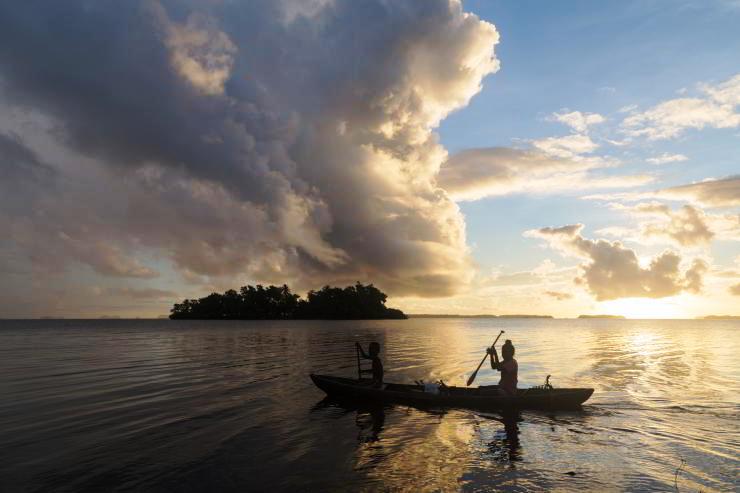
Strong tensions and power games between China, the West and Australia are crossing the Pacific Ocean. The Solomon Islands are at the centre of many interests.
The Solomon Islands are not prepared to be considered Australia’s “backyard”. And even if tensions between the capitals of the two Oceanian countries have decreased, they more or less continue underground and they are also linked to the interests that China and the West have in the Pacific. In Canberra, in 2022, the Labor Party of Prime Minister Anthony Albanese took office, while in April 2024 in Honiara, 1,600 kilometres to the northeast, the combative and controversial Prime Minister Manasseh Sogavare had to give up his seat to former Foreign Minister Jeremiah Manele.The basic choices, however, do not change. The security pact signed by the Solomon Islands with China in 2022 remains. And the contents of the agreement continue to be secret.
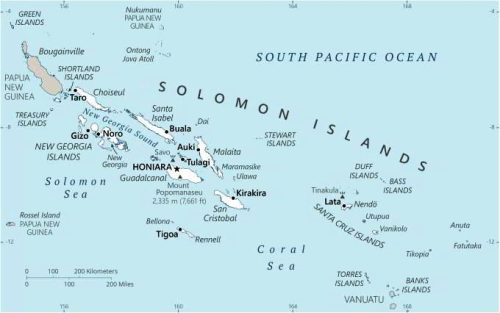
Map of Solomon Islands. The Factbook
There is the widespread suspicion that, at a certain point, it will allow Beijing to establish a military presence in the middle of the Pacific. Manele, however, is not as inclined as Sogavare to the bellicose rhetoric then generously reciprocated by the liberal Scott Morrison in Canberra until his electoral defeat. The end of the manifest tensions has not, however, reduced the intensity of the work, largely underground, that China and the West are carrying out for a sort of preventive occupation of the immense area of the Pacific Ocean. China – except for the centuries-old presence of thousands of traders and businessmen – has only appeared in the area in recent decades.
The United States left its mark with the decisive battles of the Second World War against the Japanese. England was the colonial power until half a century ago, then disengaging from a military and largely diplomatic point of view. But now Beijing has arrived to shake up the scene, making itself highly visible everywhere with various forms of collaboration for development – and in some cases, security – in Fiji, Kiribati, Vanuatu as well as the Solomon Islands.
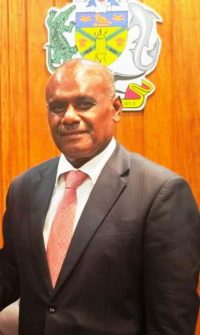
Prime Minister Jeremiah Manele, since 2 May 2024.
It is precisely in the latter that Chinese penetration has been easier and deeper, due to the traditional ethnic and political instability of the country. The already mentioned Manasseh Sogavare – with a polemical temperament and hostile to Australia and the West, with the then Foreign Minister Jeremiah Manele, had formally recognized the People’s Republic of China in 2019, abandoning Taiwan, which had to close its diplomatic representation.
The orientation compass had been summarised in the slogan “Look North” “Let’s look North” – instead of just towards the South (Australia and New Zealand), diversifying partners and making them compete with one another, with the idea of gaining from it. And China has not skimped on contributions to public infrastructure especially with the support of the Pacific Games in Honiara in 2023 and the new large city stadium.
The transition from Taiwan to Beijing, however, was not painless. It has reignited the age-old rivalry between the island of Malaita, a close friend of Taipei and where a third of the archipelago’s approximately 750,000 inhabitants live or originate – and the rest of the country, in particular, the island of Guadalcanal with its capital Honiara. When Prime Minister Manasseh Sogavare refused to resign over the issue of China, at the end of a march on Parliament in November 2021, protesters set fire to Chinatown, forcing the government to request urgent help from police forces from Australia, Papua New Guinea and Fiji.
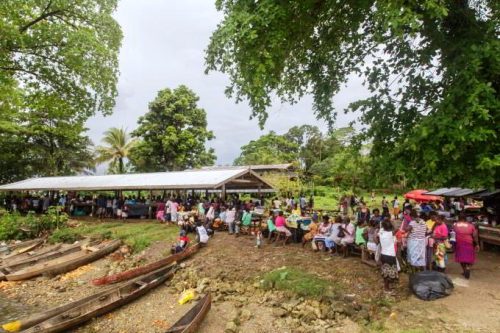
Solomon Islands Local Market. 123rf
The Regional Assistance Mission to Solomon Islands (Ramsi) was dismantled only in 2017 after almost two decades of operations in the country following even more intense ethnic clashes between the same factions. Tensions between the national government and the provincial government of Auki in Malaita persist and appear difficult to resolve. It is easy to imagine that the presence of growing Chinese communities in the small Pacific states and the concern, even sincere, for their safety offers Beijing an opportunity and an ideal pretext to establish security pacts that are not directly military but still armed. We are not talking about the army but the police. Even more so if, as happened in Honiara in November 2021, the Chinese district ends up under attack with human and commercial losses. Today, however, it is not only the Australian and Pacific police who support, integrate and train their Solomon Islands counterpart, but also the Chinese ones, with the secret memorandum of understanding of 2022 that could contain more and leaves the door open to suspicion.
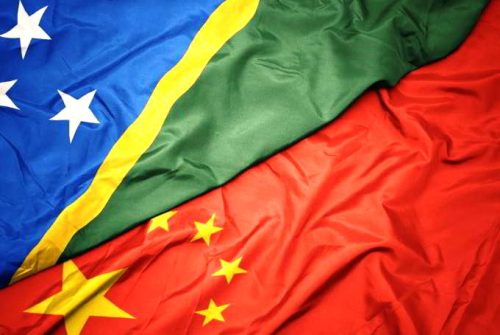
Flag of China and the national flag of Solomon Islands. Shutterstock/esfera
The context is that of an archipelago of over 900 islands, of which only six are of considerable size, which became completely independent from England only in 1978 and is still part of the Commonwealth. Although not exactly a failed state, it remains a substantially unfinished nation. Unlike neighbouring Papua New Guinea, which is much larger and ethnically more diverse, the Solomons have not yet succeeded in harmonizing the most significant island components into an orderly national political system. They have always renounced a national army, entrusting all forms of internal security and national protection to a few hundred policemen. But for thirty years now they have needed external help for the same purpose. The West is largely recovering from the disadvantage accumulated with its absence from the Pacific scene since the post-war period and the consequent Chinese counterattack. The US has only recently reopened the embassy in Honiara, which was closed in 1993. The country was one of the most affected during the Second World War and there is a palpable fear of suffering the same fate in the event of a new global conflict, this time between China and the United States, of which the Pacific would inevitably be the main theatre.
For its part, the population is asking not only for peace and stability but also for radical improvements to the infrastructure, especially land and sea communications, to be able to move and sell or export their products. At least 75% of the inhabitants still live on subsistence agriculture, mostly in very remote villages and on islands hundreds of kilometres from Honiara. However, neither China nor the others reach there, because what matters is being present and being noticed in the proximity of the centres of power and control of the crucial hubs of the country. (Open Photo: Children on the way to school with a canoe during sunrise in the Solomon Islands.123rf)
Giorgio Licini



